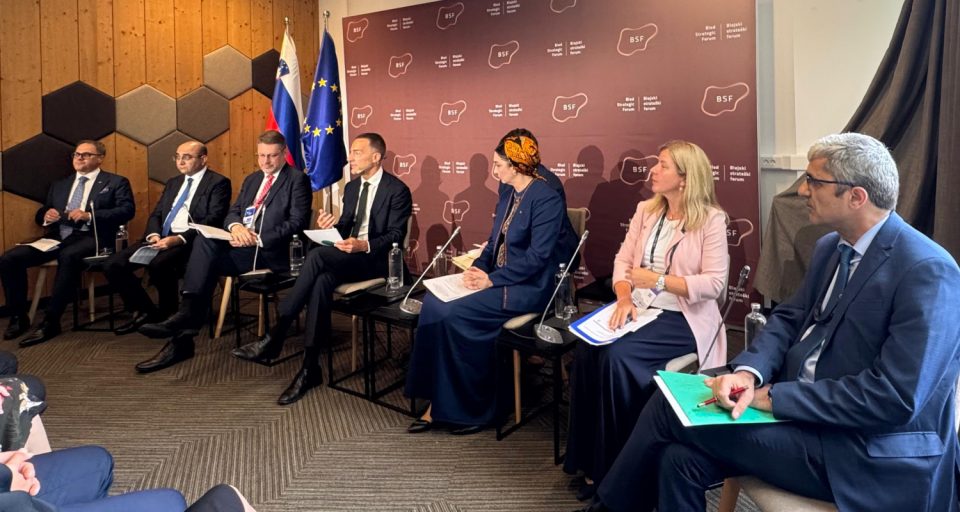Within the framework of the anniversary Bled Strategic Forum (1-2 September Slovenia), a round table “The Centrality of Central Asia” was held, dedicated to the issues of expanding cooperation between the European Union and the countries of Central Asia.
The discussion was attended by Deputy Minister of Foreign Affairs of Turkmenistan Myakhri Byashimova, Deputy Minister of Foreign Affairs of Uzbekistan, representatives of delegations from other Central Asian countries, as well as the European Union Special Representative for Central Asia, Eduards Stiprais.
The discussion covered a wide range of issues related to connectivity, from the development of transport corridors to energy cooperation, digital solutions and strengthening people–to-people contacts. The participants noted that Central Asia plays a key role as a strategic bridge between Europe and Asia, and it is through the expansion of ties and infrastructure that the region can become a full-fledged driver of Eurasian integration.
In her remarks, Byashimova stressed that Turkmenistan’s neutral status, recognized three times by UN General Assembly resolutions, is not a limitation, but, on the contrary, an instrument of trust and open interaction with all countries of the world. The policy of “positive neutrality” allows Turkmenistan to take an active position in regional and international processes, build constructive relations and contribute to ensuring peace and stability.
The Turkmen side provided information on large-scale investments in the transport sector, including the construction of roads and railways, as well as the development of the modern international seaport of Turkmenbashi, which has become a multimodal “gateway” of Central Asia to the Caspian region and further to Europe. Special attention was paid to current initiatives on transport connectivity: the launch of the Trans-Caspian Transport Corridor Coordination Platform in Ashgabat in October 2024, the results of the 20th EU–Central Asia Ministerial Meeting in Ashgabat, as well as the first EU–Central Asia Summit held in spring 2025 in Tashkent.
In the energy sector, the Turkmen diplomat stressed the country’s contribution to the diversification of routes, the development of new formats of cooperation, including gas swaps, and the promotion of a “green” track of cooperation. It was noted that Turkmenistan has joined international initiatives to reduce methane emissions, is actively implementing renewable energy sources and links cooperation with the EU with the climate and environmental agenda.
Additionally, the Turkmen delegation stressed that the role of Central Asia in the modern world lies not only in geography, but also in responsibility for ensuring a stable and secure bridge between East and West. Turkmenistan, being at the crossroads of Eurasia, considers this as a strategic mission and is ready to share its experience of neutrality, transport solutions and energy cooperation to strengthen regional and interregional stability.
The participants of the round table noted the high dynamics of the political dialogue and expressed their commitment to further strengthen cooperation between the EU and Central Asia, actively use existing mechanisms and develop new formats of interaction in the interests of all parties.



